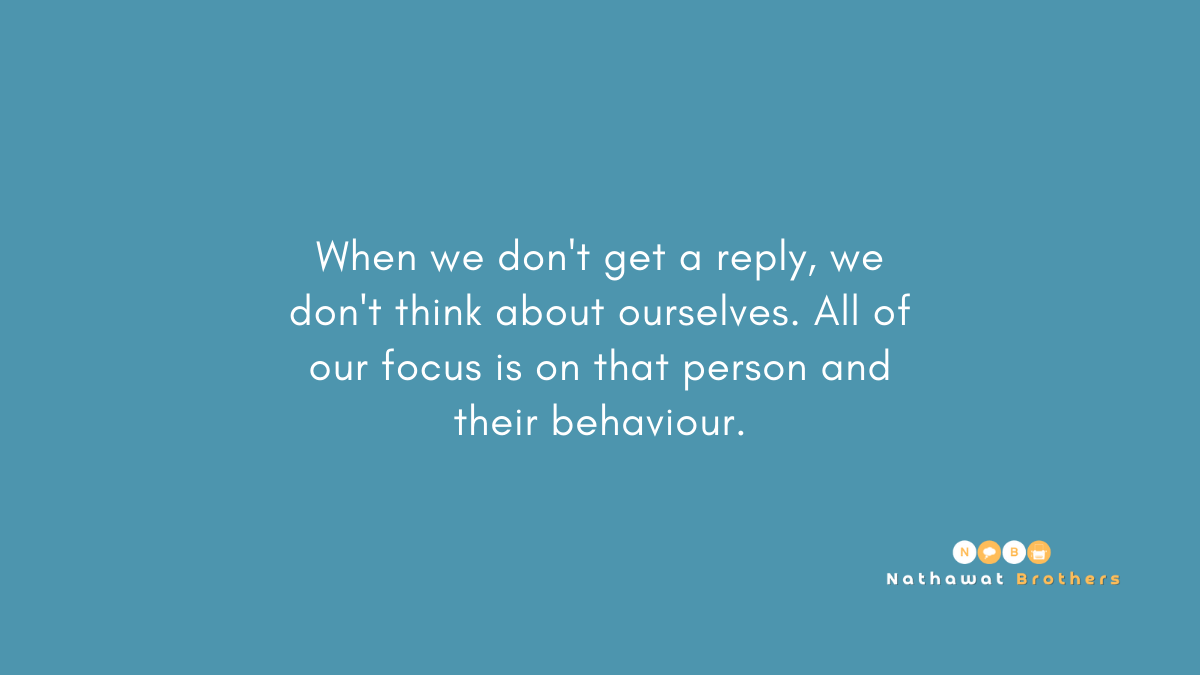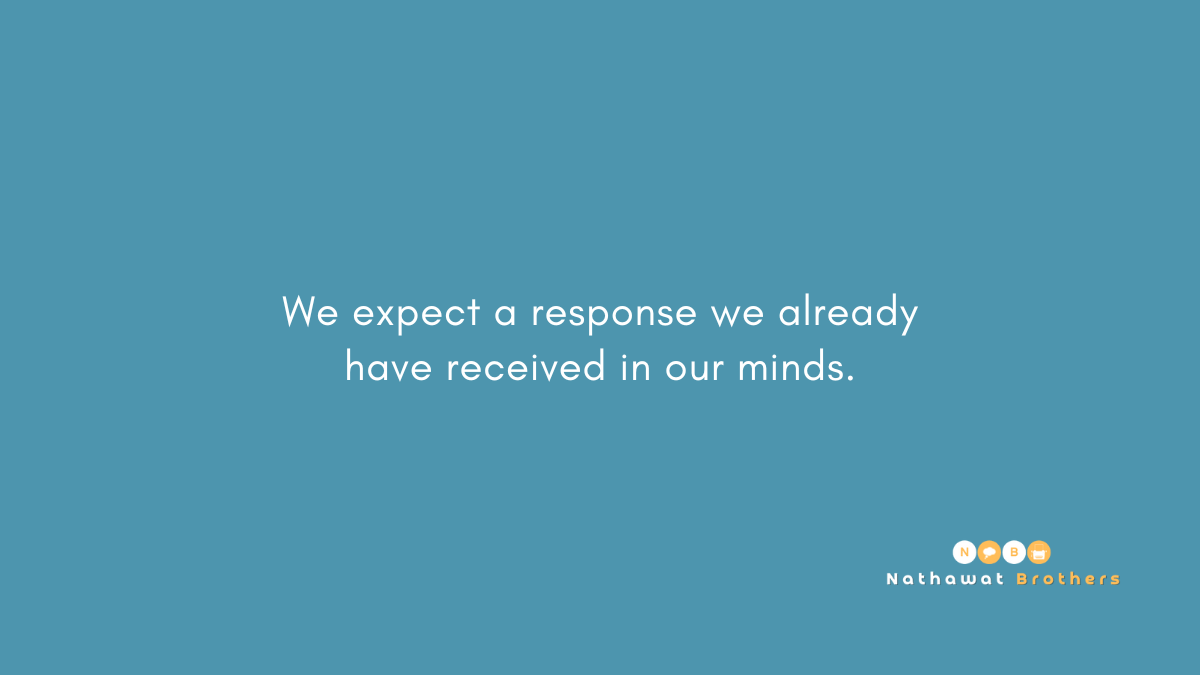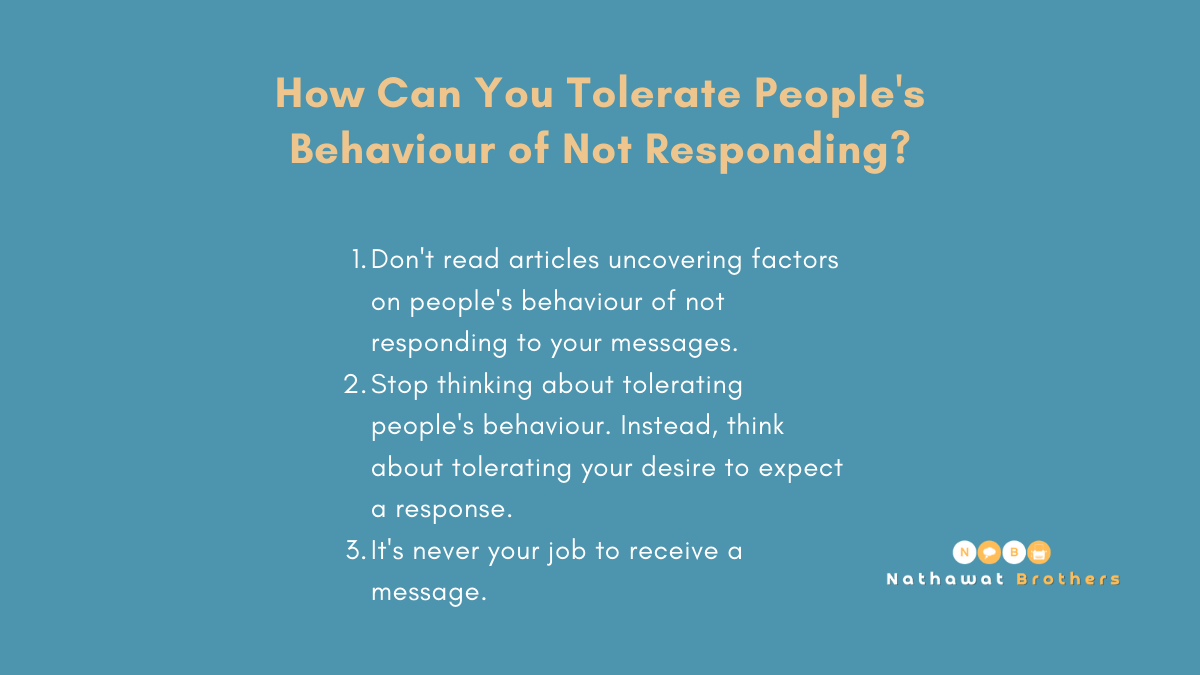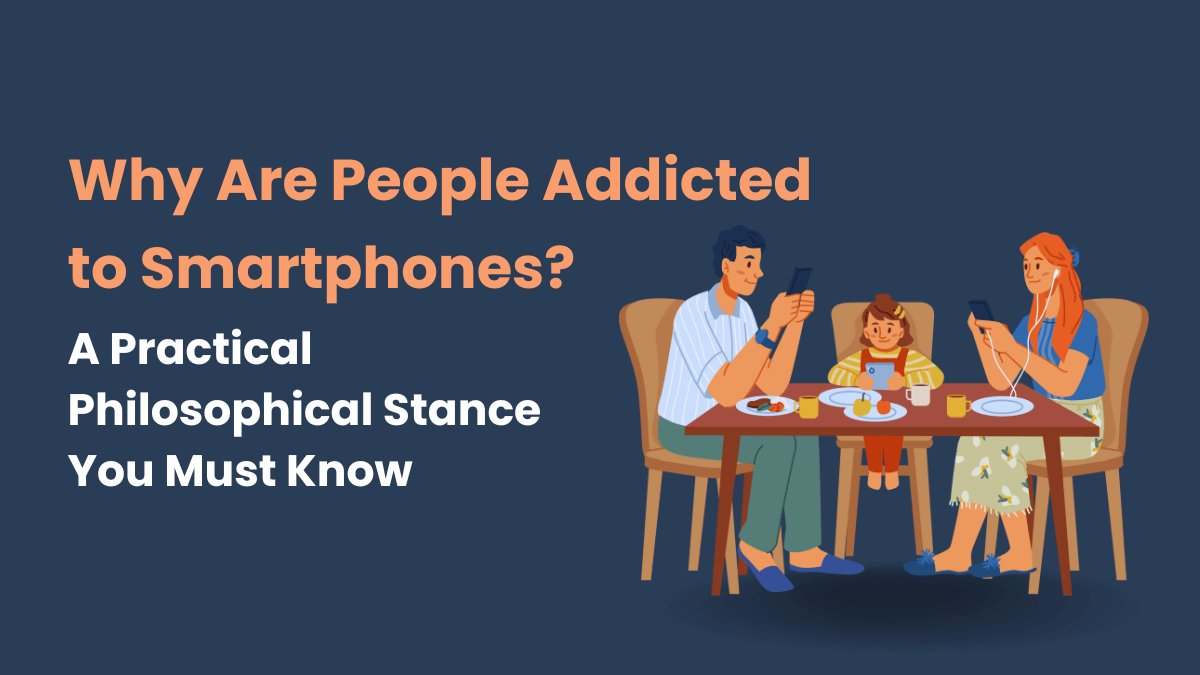We send a message and start expecting a response.
If we don’t get one, we go into the deep thinking about measuring self-worth.
Why did that particular person haven’t responded to our message?
- Is she or he ignoring me?
- Has she seen the message or not?
- Are they busy?
- Have I offended them somehow with the last message, and that’s why they’re not responding?
Likewise, we run countless questions into our minds and overthink. We feel restless for a day or two, and if we still don’t get a reply, we send one more.
If, by chance, something comes, we feel good. Our ego has served. However, if not, then it’s hard to bear.

We can’t stand the idea that the other person has chosen not to respond. We think they are ignoring us. We think they don’t care about us.
And all of our thinking gets focused on that person and their decision not to reply.
In this particular situation, even for a moment, we don’t think about ourselves. All of our focus is on that person and their behaviour.
And if we do think about ourselves, it’s all about our ego and how much it’s got affected.
Rather than thinking about why we’re expecting a reply, our focus centres on the question of why they didn’t respond.
If you look up on the internet, you will find countless articles discussing why people don’t respond and what you can learn from it, for example, their behaviour and type. However, there’s rarely an article picking up on the idea of our behaviour of expecting the response.
Because if we know why we expect a reply on a psychological level, we can easily tolerate people’s behaviour of not responding to our messages.
If you’re curious to know, then continue scrolling.
After Not Getting Response to Countless Messages, This Is What I Learned
Since 2019, I have been helping clients of different types. Some are demanding, so some are harmonious. Till now, there must have been an exchange of 1000s of messages, perhaps more.
In professional life, expecting a response is based on the demand of the work.
We have to make some changes, apply something new, delete the unnecessary, and so on and so forth. It’s all for the sake of making progress in the project.
So, expecting a response is somewhat understandable.
However, in personal life, the purpose of sending a message is always different in every situation for every person with every other person.
There’s no project going on in which we need progress.
But, whether professional or personal, when we don’t get a reply, we feel restless.
And this is what we have to address.
So, after not receiving 1000s of responses from both professional and personal people, and a little self-introspection, what I have learned is that it’s never about people’s responses.
Instead, it’s always about attaching a response of our own to the message we send.
Wait, what? Attaching a response of our own? What are you talking about, Vish? How is this possible?
Well, my dear reader, it’s a hidden response we add to every message we send and expect from the other person. And it could be anything.

For example, you send the following messages to your closest friend:
- I waited for you, and you didn’t show up.
- Congratulations on your new house.
To both of the above messages, you got no reply. None, and you feel bad.
Okay, why do you feel bad?
Well, just look at both messages and try not to see any hidden response you might expect.
I guess you’re still looking. Well, keep looking and don’t try to interpret your own response. Just don’t. Ugh! You can’t help. See, this is what happens when you send a message and don’t get a reply.
Don’t lie and honestly accept that both of the messages are highlighting a particular response expectation.
The “I waited for you and you didn’t show up,” message was expecting a reason why your friend didn’t show up and a big “SORRY,” right?
The second message, “Congratulations on your new house,” was expecting an expression of gratitude such as “Thank You.” Correct me if I am wrong.
Well, I am not.
Because this is what happens, we expect a response from the person we send the message.
But actually, we expect a response we already have received in our minds. If things aren’t satisfied in our minds, we go astray.
If you also feel the same from time to time, then don’t worry; it’s totally human. We perform an action, and we expect a reaction. It’s in our nature; this is what has been and what will be.
However, we can improve ourselves and don’t let this “expecting a response” thing eat us.
So, how would we do it? How would we tolerate people’s behaviour of not responding to our messages? It’s not far… hop on to the next section.
Let’s do this together, yeah!
You May Also Like
How You Can Tolerate People’s Behaviour of Not Responding to Your Messages (Effectively)
The first thing you need to do to become mindful in this situation is not to read countless articles on the internet uncovering psychological factors on people’s behaviour of not responding to your messages.
Just don’t do it.
There’s a lot of bad advice, which can make you think badly about the people you love. Beware what you read and eat because you become what you read and eat.
If you eat trash, you become one. If you read trash, then it’s worse than eating the trash.
The second thing you need to do is stop thinking about tolerating people’s behaviour of not responding to your messages. Instead, think about tolerating your desire to expect a response.
Take this thought as much as possible far from your mind.
Because it’s never about people’s behaviour; instead, it’s about the thinking in your mind, the urge in your body and the emotions in your heart.
Therefore, tolerate your expectations. As the saying goes, “Be tolerant with others and strict with yourself.”
And last but not least, it’s never your job to receive a message. Your job was to send the message. Now, it’s totally up to them whether they choose to respond or not.
It’s just like sowing the seeds in the ground and letting God do the work of growing the crop.
“कर्म करो फल की चिंता मत करो – karm karo fal ki chinta mat karo,” you have the right to work, but never to its fruits. Let not the fruits of action be your motive, nor your attachment be the cause of inaction—Bhagavad Gita.
Therefore, think of the medium as your field and your message as the seed, and consider the other person as God and their response a fruit.
Don’t succumb to impatience and let time play its bidding. This is how you can tolerate the expectation of expecting a response.

I hope these points will help you understand and handle your situation of not receiving a message. Every time this happens, don’t let your emotions run the show. Instead, take a deep breath and let go.
That’s the best you can do instead of sending another message.
If you want to read more articles like this, please subscribe to our free newsletter. Share this post as much as you can, and if you want to support us, then Buy Us Coffee by clicking on the button below.

Nathawat Brothers
Putting thoughts for everyone.




